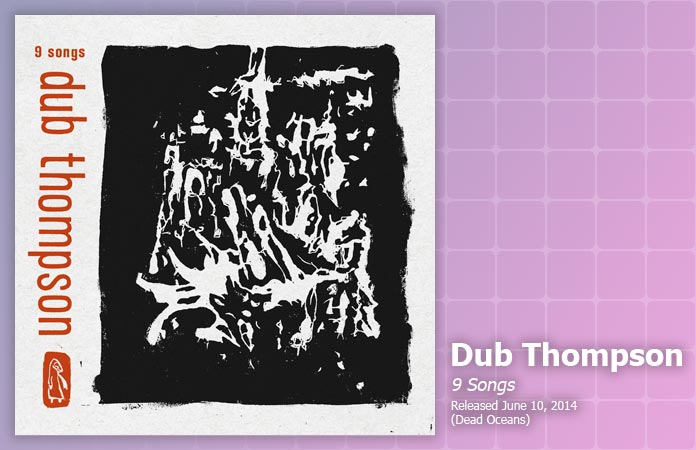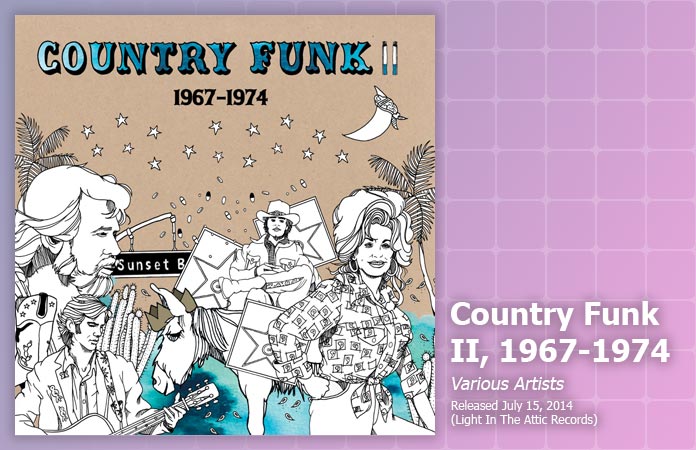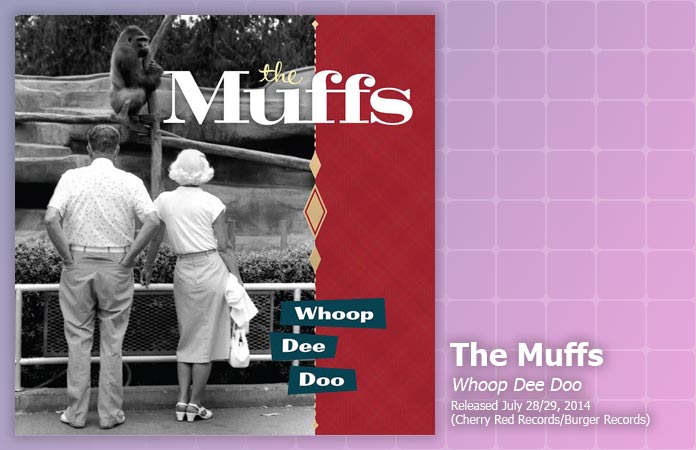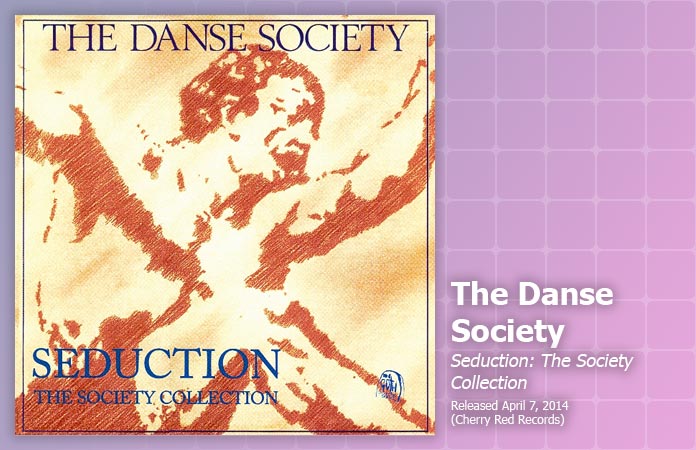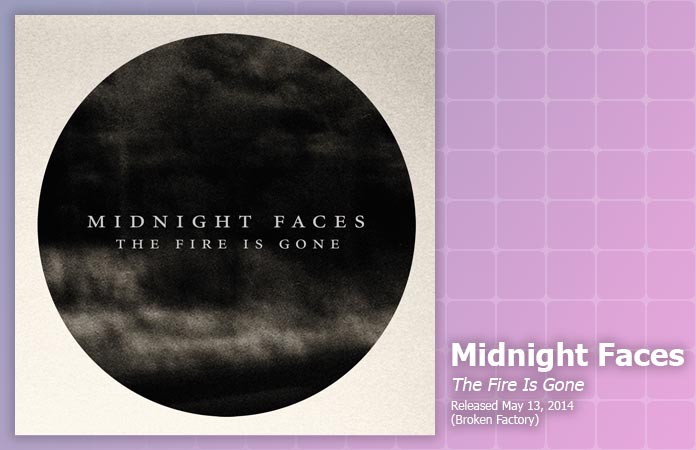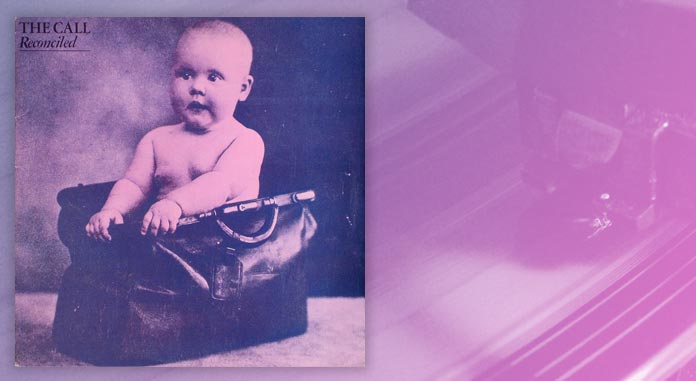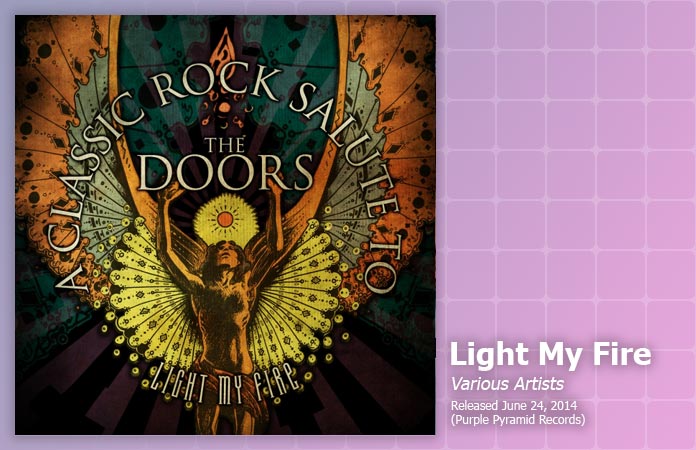Music Review: Brian Reitzell, Auto Music
Published on August 1st, 2014 in: Current Faves, Music, Music Reviews, Reviews |While Fannibals will know about Brian Reitzell because of his spectacular and spooky music for NBC’s Hannibal, he’s so much more than that. Besides serving as the music supervisor on several Sofia Coppola films (Lost In Translation, Marie Antoinette), scoring film and television (30 Days of Night, Peacock, Red Riding Hood, Friday Night Lights, Boss), and video games (Watch Dogs), Reitzell also recorded and performed with both Redd Kross and Air and was a member of terrific one-off projects like TV Eyes and Logan’s Sanctuary.
The genesis for this album was literally just Brian Reitzell messing around in the studio, exploring ideas for his soundtrack work. Even though Auto Music was about a decade in the making, it doesn’t sound either too studied or haphazardly slapped together. It’s subtle yet self-assured, even on the more bombastic tracks. Despite what you might think about instrumental albums, it’s anything but boring. Inspired by films and filmmakers themselves, it creates a perhaps unsurprising visual world.
Music Review: Dub Thompson, 9 Songs
Published on August 1st, 2014 in: Current Faves, Music, Music Reviews, Reviews |At first blush, you might think Dub Thompson is punking you. The tracks on their debut, 9 Songs (which has eight songs, by the way), sound a lot like demos. These aren’t songs with actual verses and choruses. These are songs made up of tonally conflicting sections that rub up against each other, variations on a theme of impetuous, mischievous energy. The guitars have a jittery bravado and the drums and bass are turned up so that you feel them in your guts. Dub Thompson seem like they’re taking the piss but the music is seriously fantastic.
Waxing Nostalgic: The Fixx, “Cameras In Paris”
Published on August 1st, 2014 in: Music, Waxing Nostalgic |If any band was helping Eighties kids dance their way into oblivion, it was London’s The Fixx. Dance-oriented music with serious gloom and doom lyrics, The Fixx was the great combo meal of the decade. Worried about global politics and the possible annihilation of the self within an existential context? You’ll love The Fixx. Want to dance all night to some sweet bass licks and driving, sparkling synths? You’ll love The Fixx.
New Country for Old Men: Florida Georgia Line, “Cruise”
Published on August 1st, 2014 in: Music, New Country For Old Men |Country music is all fucked up right now, a hat-wearing mass of contradictions, suffering from multiple personalities, trying to please all the people, all the time, and straying so far from its roots that hearing traditional country on the air anymore is a miracle. Country rap is on the rise, as are guitar riffs and bass lines that would have been giant hits as hair metal songs during the Eighties. It’s hard to even define country anymore, and if you think it is all sad trains and dogs and singlewide trailers and Mama in the rain, you haven’t listened to country in a long time. There are still novelty songs floating around, catchy like West Nile virus, the equivalent of waiting until the rest of the family is in bed before eating that box of donuts on the counter. Now the genre is showing a disturbing amount of culture appropriation, including all the misandry and misogyny found in some rap and R&B music. There’s a lot of shit out there, and finding a jewel among the turds is not an easy task.
And I’m saying this as a fan.
As much as there are terrible things in country music right now that need to be called out, the good songs also need to be recognized and praised. That’s about as close to a mission statement as you’ll get from me, and that’s what this new column is going to strive to do: separate the horrendous stinking crap from the finely crafted good songs and sparkling production Nashville has been known for since . . . well, since Buck Owens started recording in Bakersfield.
I told you country music was full of contradictions.
Music Review: Various Artists, Country Funk II, 1967 – 1974
Published on August 1st, 2014 in: Culture Shock, Current Faves, Music, Music Reviews, Retrovirus, Reviews |If you’re like me, the first thing you think when you hear the name “Kenny Rogers” is “that guy sure does bring the funk.” Perhaps, though, you don’t, and honestly, I didn’t either until I heard his track (with The First Edition) “Tulsa Turnaround” on Country Funk II, 1967-1974. “Tulsa Turnaround” is a swoony slow ride about an “Omaha honey” who learned the Tulsa Turnaround from someone called “Funkybutt,” I believe. I never did learn exactly what the Tulsa Turnaround is, but I did glean this nugget of information from the song: “If a man’s gonna eat fried chicken/he’s gonna get greasy.” It’s a pretty damned amazing song, and would be great on a soundtrack for a movie where there are car chases and someone is called “Rooster.”
Music Review: The Muffs, Whoop Dee Doo
Published on August 1st, 2014 in: Current Faves, Feminism, Music, Music Reviews, Reviews |The Muffs have released Whoop Dee Doo, their first album in a decade, and for one musical moment all is right with the world. Long time friends and bandmates Kim Shattuck (guitars, vocals, organ), Roy McDonald (drums, percussion), and Ronnie Barnett (bass, vocals) bring excellent musicianship and songwriting as well as a spirit of fun every time, so it’s no surprise that Whoop Dee Doo follows suit. Six albums into their career, what band hasn’t released a clunker or put a bit of filler on a couple of albums? The Muffs, that’s who. The Muffs move in, kick your ass, and move out in under four minutes.
Music Review: The Danse Society, Seduction: The Society Collection
Published on July 25th, 2014 in: Current Faves, Music, Music Reviews, Reissues, Reviews |If all you’ve ever heard from The Danse Society was their excellent 1985 single “Say It Again,” congratulations! You and I have something in common. It was with curiosity and anticipation that I decided to review Seduction: The Society Collection, and I was both surprised and pleased.
Music Review: Midnight Faces, The Fire Is Gone
Published on July 25th, 2014 in: Current Faves, Music, Music Reviews, Reviews |The dreamy, ’80s pop of “Wake Me” opens Midnight Faces’ sophomore album, sounding like the sunnier end of The Cure’s multicolored musical spectrum. Philip Stancil’s voice, however, is nothing like Robert Smith’s, and has a gritty, reedy edge that helps ground the songs on The Fire Is Gone.
“Over Again” has a darker vibe, albeit with that same reverbed guitar, and proves to ’80s naysayers how versatile that sound can be. The slow hush of “Shadows” features anxious harmonies and a heavy bassline.
But if you think Midnight Faces are just another wanna-be shoegaze band, think again. The soaring, joyous “Hold Tight” veers into actual power pop territory, with a chorus that could easily fit in amongst Taylor Hanson’s finest, while the whistling melody of “This Time” is ridiculously infectious.
The album switches gears again with the R&B dance flavored “Give It Up” and the electronic drums of “Animal,” which could easily be a forgotten hit from 1986. Coming full circle for the final track, “The Fire Is Gone” is another melancholy gem with some thoughtful lyrics and a fantastic chorus.
For those looking for something a little unexpected in their dream pop, I guarantee Midnight Faces will hit the spot.
The Fire Is Gone was released by Broken Factory on May 13.
Waxing Nostalgic: The Call, “Oklahoma”
Published on July 25th, 2014 in: Music, Waxing Nostalgic |The Call was one of those Eighties bands that almost made it. They had a decently large fanbase, but they just never quite caught on. Most people know their biggest hit, “I Still Believe,” better from that scene in The Lost Boys, where it is performed by saxophonist/body-builder Tim Cappello. [That fuckin’ guy. All greased up and shiny in the firelight, like a Rob Liefeld comic come to veiny life.]
Music Review: Various Artists, A Classic Rock Salute to The Doors: Light My Fire
Published on July 25th, 2014 in: Music, Music Reviews, Retrovirus, Reviews |It’s one of those burning musical questions, the kind of thing that keeps you up at night, losing sleep. What exactly would it sound like if a bunch of classic rock artists covered the songs of a classic rock band they were never members of? It’s a staggering premise, to be sure. I mean, is that even legal? Won’t that push the limits of rockitude past its previously agreed upon limits?
Short answer: no, it won’t. The good news is, it doesn’t completely suck.

